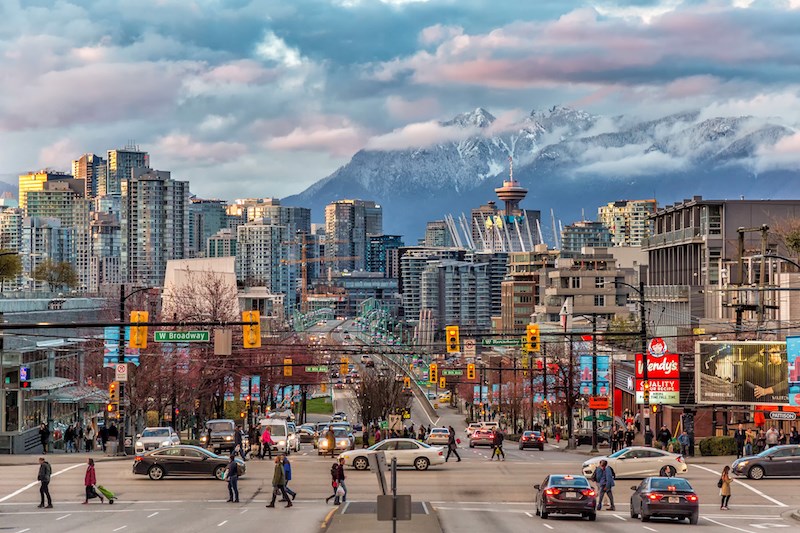Let’s face it. Â鶹´«Ă˝Ół»City Council has problems making decisions. Consensus on even the smallest of issues requires hours of debate and amendments upon amendments upon amendments. And this process often results in an outcome that no one is happy with.
Imagine the day this Council is presented with some kind of final version of the new Â鶹´«Ă˝Ół»“City” Plan that they have to vote on... if they actually even get to that step before the end of their term?
I don’t envy staff. This massive tome will be picked apart and revised by less experienced, know-it-all politicians and staff will, as they have on many occasions since 2018, leave scratching their heads about what was actually approved.
The Â鶹´«Ă˝Ół»Plan is trying to do too much, and will likely far surpass the original budget of $18 million if Council keeps going the way they are going. The stated goals of the upcoming city-wide plan include, but are not limited to:
â—Ź planning for complete neighbourhoods and exploring new housing types and densities
â—Ź advancing reconciliation with First Nations
â—Ź maintaining a diverse and inclusive community
â—Ź increasing and protecting housing supply that is locally affordable
â—Ź addressing transportation needs
â—Ź growing local jobs in a sustainable and diverse economy
â—Ź enhancing social well-being and local food security
â—Ź improving public amenities
â—Ź reducing greenhouse gas emissions and tackling the climate crisis.
That’s a lot, thanks to the ambitious staff and a Council that still, three years into a four-year term, is trying to find its legs. It’s simply too much, and not what we need.
What does Â鶹´«Ă˝Ół»need, you ask? We need a simplified spatial plan.
A spatial plan is the method and approach the City of Vancouver, staff and Council, would look to when deciding how to distribute people and activities in spaces across the city. Generally, in BC, these spatial plans are found within all other communities’ official community plans or OCPs. These are required by provincial law for all communities -- Richmond has one; Burnaby has one. Surrey has one. But because Â鶹´«Ă˝Ół»is governed by the Â鶹´«Ă˝Ół»Charter, it’s treated differently. Sure, it submits a pile of “plans” that meets the criteria of the Province and the Â鶹´«Ă˝Ół»Charter, but not one detailed vision of the city in the form of a readable plan with a beginning, a middle and an end that lays out how we will use our space for many, many years to come.
Vancouver’s only city-wide “spatial” plan was created by Harland Bartholomew in the 1920s under the guidance of the Â鶹´«Ă˝Ół»Planning Commission, which guided staff work but was, to many people’s surprise, never officially adopted by Council. In 1995, Council adopted CityPlan, which provided a framework for deciding City of Â鶹´«Ă˝Ół»programs, priorities and actions over the subsequent 20 years. It spun off into the community visions program. So really-- nothing official related to how we use our space in a specific way has been sent up since the 1920s, and that was never even adopted!
To give you an example of why we need a basic OCP or spatial plan: if the Engineering Department needs to know what size sewage pipe to install along a main arterial, where would they look? Recent neighbourhood plans along the route? The Bartholomew plan? A crystal ball? If staff, and Council for that matter, have no idea what the goals are for density along that corridor for the next 50 or 100 years, they are likely going to underbuild because it would be difficult to pitch spending more money without a strong justification based on facts or plans. The same goes for the Planning Department. If we know roughly what areas will be denser than others, then neighbourhood planning and design principles can be better prepared and presented to Council, making it easier for Council to prioritize parks, senior centres, schools and daycare facilities.
With just over one year left before the next election, staff and Council need to revisit and refine the current Â鶹´«Ă˝Ół»Plan. It is simply too ambitious, too big, too expensive, too complex and set up for failure. They need to look to the simplicity of other communities’ OCPs and follow that model. Once that is done, they can go ahead and build out plans for all the other ambitious ideas they or future councils might prioritize at that time. But not to have completed a proper overall city spatial plan in 100 years borders on irresponsible and this Council and the staff at Â鶹´«Ă˝Ół»City Hall need a wake-up call before they waste any more time, money, staff resources and council energy on something that will not get the job done, which is set out how our city should or could be built over the next 100 years.
George Affleck is a former City Councillor in Vancouver, retiring from office in 2018. He is the Founder of , Co-host of the political podcast Unspun, and a regular contributor on CTV and CKNW. Twitter



